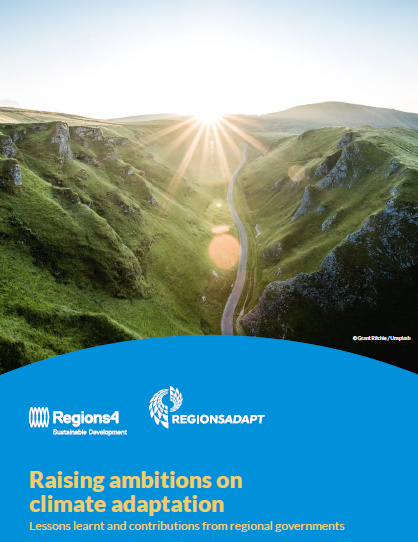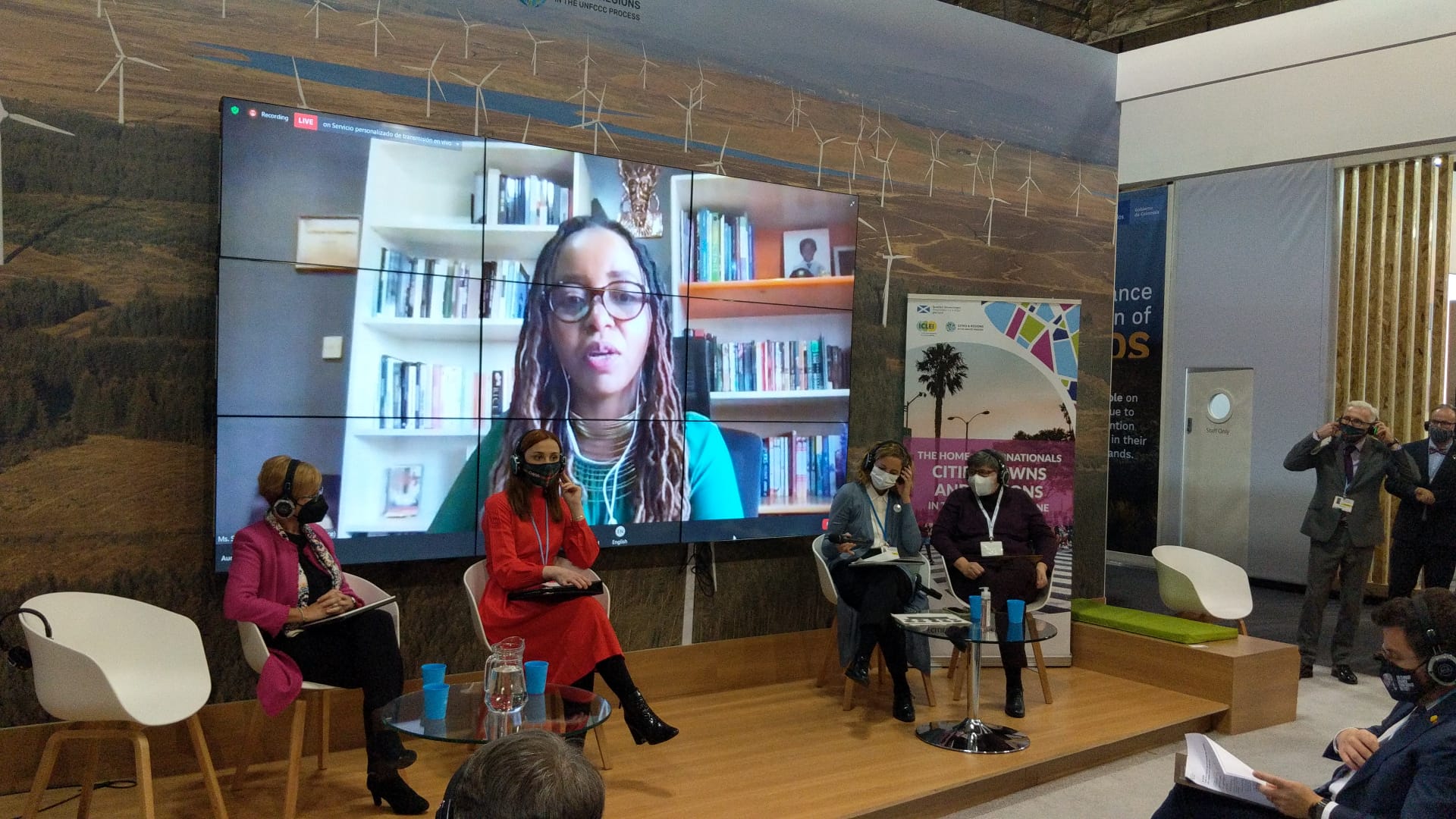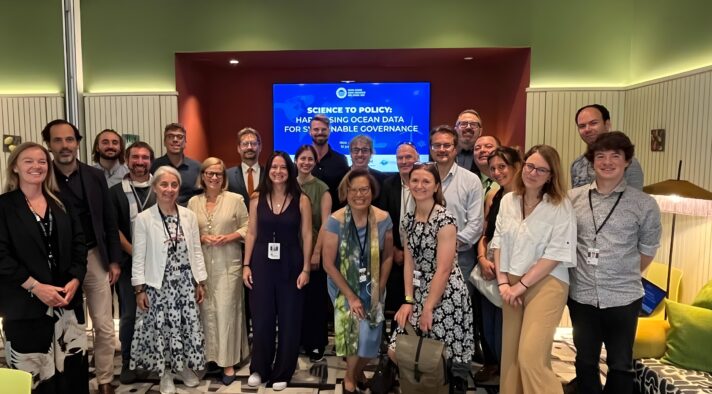The current decade 2021-2030 is the most vital period for reaching climate neutrality and the emissions reduction targets adopted in the Paris Agreement.
Regions4, through its flagship initiative, RegionsAdapt, has worked closely with regional governments to catalyse ambitions and promote the development of adaptation plans, as well as their concrete implementation and accountability through annual reporting and capacity building. The actions delivered by 76 regional governments impacting 300 million people, now contribute to the Race to Resilience campaign, and its goal to achieve the resilience of 4 billion people vulnerable to climate change by 2030.
The COP26 is an occasion to look back at this experience gathered over the past 5 years, build on the good practices and lessons learned, and propose innovative and sound recommendations on the way forward.
In this context, Regions4 is currently participating at COP26 in Glasgow to promote multilevel governance for increased ambition and effective action on climate adaptation through the key role of regional governments.
Today, Regions4 organised the special high-level event The Leading role of regions in raising ambitions for adaptation and resilience as part of the official programa of the LGMA Multi-Level Action Pavillion.
During the event, Regions4 has launched the brief report for COP26: Raising ambitions on climate adaptation: lessons learnt and contributions of regional governments, which shares 11 leading good practices from 5 years of experiences of the RegionsAdapt initiative, to develop integrated and multisectoral adaptation strategies. Through this report, Regions4 wishes to contribute to meeting the COP26 objectives by focusing on strengthening the capacity of regions to increase their ambitions on adaptation and resilience.
The report aims to show how regional governments have concretely developed, implemented and raised the ambitions of their adaptation plans and resilient climate actions, through innovative solutions by strengthening food security and sustainable agriculture; ensuring water availability and regulation; restoring coastal areas and protecting ecosystems; integrating the urban and rural realities; advancing towards renewable energy models; and developing education schemes to increase capacity‐building among others.
Thus, it aims to provide insights to inform policy makers in further decision-making in the hope these cutting-edge best practices will be upscaled from the regional to the national and international level.
These lessons learnt bring key recommendations to co-create and co-design the actions that will avoid further damages, protect human lives, ecosystems, and livelihoods, to truly transition towards resilient economies and territories.
Natalia Uribe, Regions4 Secretary General had to say on the making of the report: “When we launched RegionsAdapt at COP21 in Paris, with the government of Catalonia and Rio de Janeiro, we did it so with the conviction that adaptation needs to be higher in the global climate agenda. RegionsAdapt became the first global initiative to mobilize political engagement to inspire and support regional governments in developing strategies and plans to accelerate concrete adaptations actions and to report on the progress made. In the past 5 years we have witnessed the implementation of over 50 adaptation plans with over 230 adaptation actions being reported on an annual basis.”
The report was developed in collaboration with the Basque Centre for Climate Change (BC3), its’ director, Maria José Sanz, took part in the event where the report was launched and remarked about the findings: “Almost 80% of the countries have at least one national level adaptation planning instrument, but it’s not only about national adaptation planning, we need more. It’s about local and regional adaptation plans. Evidence suggest that is fundamental that we have a robust policy integration, with coherence. Adaptation occurs across scales and impacts are often locally. When we think globally, we must make sure that we include a bottom-up perspective, in an integrated manner and across sectors and policies.”
Further information

The report “Raising ambitions on climate adaptation: lessons learnt and contributions from regional governments” is available here.



